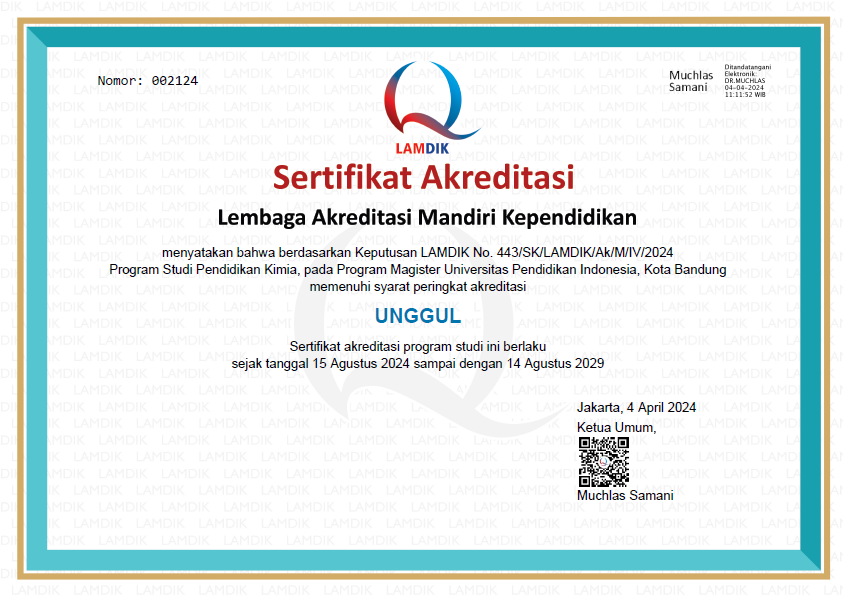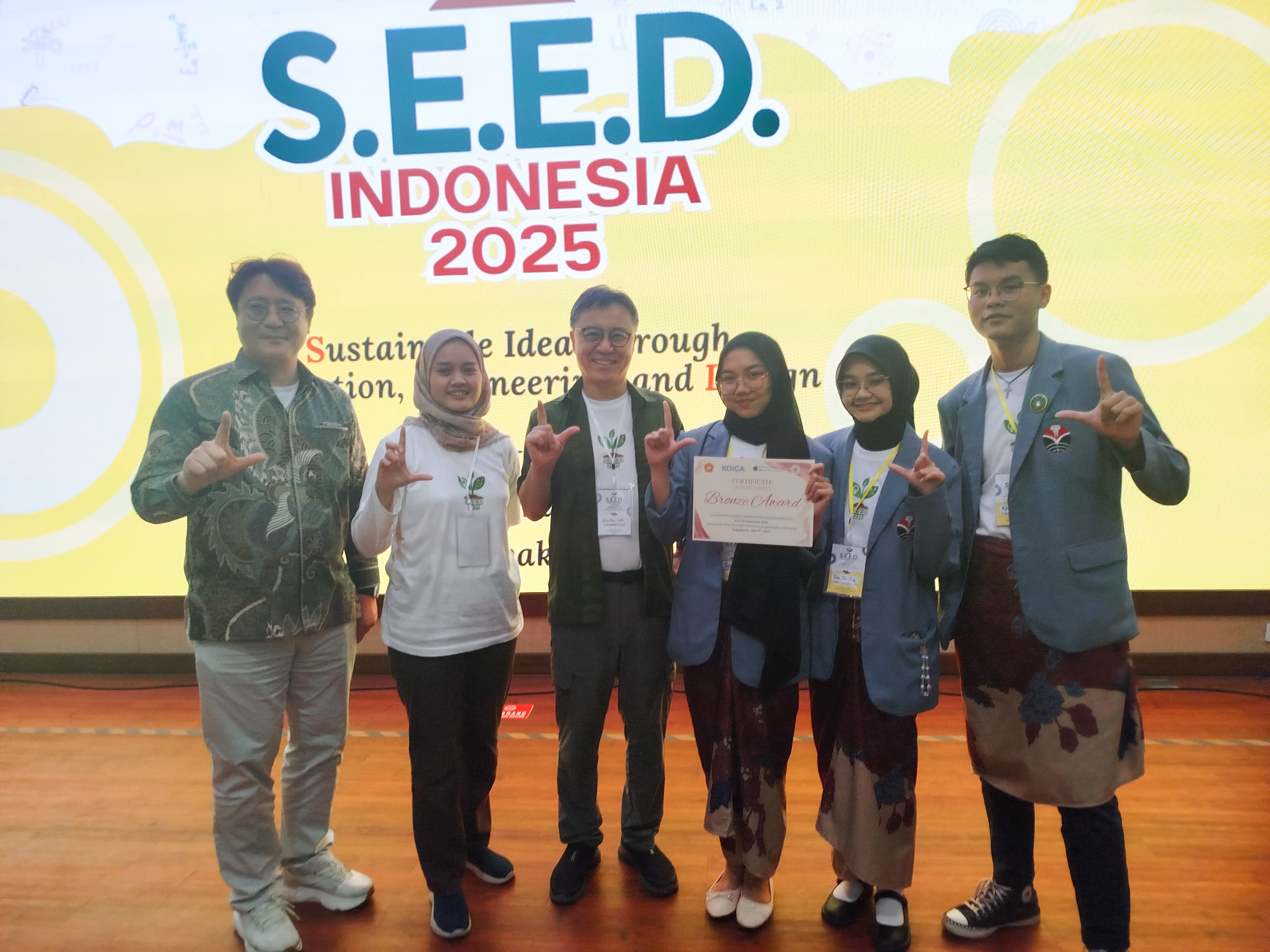Master Program of Chemistry Education (MP-CE) was established on May 24, 2012, through Decree Number 3406/UN40/DT/2012. The name of the Chemistry Education program aligns with the nomenclature outlined by the Minister of Research and Technology Decree Number 257/M/KPT/2017 regarding Program Names at Higher Education Institutions. Currently, the MP-CE program holds a "SuperiorExcellent" accreditation, which is granted through Decree Number 443/SK/LAMDIK/Ak/M/IV/2024 dated April 4th, 2024 which is valid until August 14th, 2029.
MP-CE graduates have diverse career opportunities that include roles as thinkers, researchers, developers, and practitioners in various fields related to chemistry education and science. Graduates can work as college lecturers, chemistry teachers, trainers, school supervisors, chemistry education curriculum developers, researchers in chemistry education, education analysts in policy institutions, digital learning media developers, and education consultants.

VISION
“The goal is to lead in chemistry education, emphasizing research innovation, ICT integration, and industry relevance. This vision aims to foster a community that is adaptive, collaborative, transformative, inspiring, and dedicated to advancing knowledge, intelligence, soft skills, and professional expertise.”
MISSION
- Structuring chemistry education that combines research innovation, ICT, and industry requirements.
- Advancing research that is focused on finding solutions and fostering innovation in chemistry education.
- Implementing community service initiatives that are both solution-focused and innovative.
- Establishing collaborative partnerships with educational, research institutions, and industries both domestically and internationally.
GOALS
- Creating a community that is adaptive, collaborative, transformative, inspiring, philosophical, and dedicated to enhancing knowledge, intelligence, soft skills, ICT, and professional abilities in chemistry education.
- Conducting inter/multidisciplinary research aligned with the current trends and advancements in ICT-based or assisted chemistry education.
- Developing community service initiatives that align with areas of expertise and apply research findings to address real-world needs.
- Fostering innovation in chemistry education through collaborative partnerships with educational, research institutions, and industry for a brighter future.
STRATEGY
- Developing a master's curriculum in chemistry education that is internationally recognized, featuring courses with comprehensive module handbooks, teaching materials, and assessments.
- Organizing engaging, holistic, integrative, scientific, contextual, thematic, effective, collaborative, and student-centered lectures using case methods and team-based projects.
- Enhancing students' academic skills in English, academic writing, ICT, and academic communication through pre-lecture, co-curricular (training), and curricular activities.
- Offering courses that support research in chemistry education, including: 1) Current Issues in Chemistry Education, 2) Applied Statistics, 3) Applied Research Methodology, 4) Value Education in Chemistry, 5) Continuing Chemistry Education, 6) Development of ICT-Based Chemistry Learning Media, 7) Intertextuality of Chemistry Learning, and 8) Innovative Chemistry Learning Models.
- Conducting basic, development, and applied research in collaboration, focusing on key areas such as: 1) Innovative Chemistry Learning Models, 2) Chemistry Learning Materials and Media, 3) Chemistry Education Evaluation, 4) Intertextuality of Chemistry Learning, and 5) Science Literacy and the Development of Chemistry Teacher Professionalism.
- Increasing the publication of research articles in reputable national and international journals.
- Organizing community service activities based on scientific expertise, research findings, student creativity, entrepreneurship development, and support for schools.



.jpeg)
.png)



-images-0.jpg)